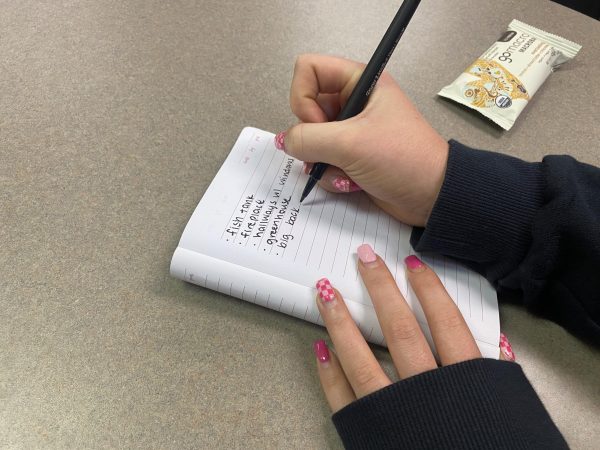Music Review: Sorry for Me
Photo by Spotify.com
Ricky Montgomery is an artist that makes music that can resonate with people. When you first listen to his songs, they seem like a classic and basic sad song with a mellow beat, but when you really listen to the lyrics and look more into the meanings, they have a much deeper, sadder meaning. Songs about being the toxic one in a relationship, domestic abuse guilt, and even songs from his loved ones’ point of view, such as Mr. Loverman.
He gained most of his popularity after two of his songs blew up on TikTok. One of them was the previously mentioned Mr. Loverman, which he wrote from the point of view of his alcoholic father who had just lost his relationship because of his alcoholism. The second song that gained him popularity was Line Without a Hook which is about his partner falling out of love with him, and him feeling guilty for it and wishing something could change. Montgomery often tells people that he only writes songs that make him and his listeners feel something, and he is proud of that fact.
Today, we are talking about his most recent release called Sorry for Me. At first, listen, its a sad song, possibly about feeling guilty for something, but when you listen to specific lines, such as “Tuesday, in the morning, I walk outside to a police car pulling up to my yard. Goodbye dear stepfather, I punch my fist right through the wall,” you can see that there’s a deeper, more personal meaning to the song. Once he released the song, we learned the full story behind it. He tells us that it’s about his abuser, his stepfather, getting taken from his home by the police on Christmas morning, and the guilt he felt after it happened.
After the beginning lines about his stepfather being taken away, his next line is “Now that it over, I don’t know how to feel. Moving to California, where I won’t have to deal.” This line is about how he moved away from where it all happened so he could try and ignore the problem and his feelings of guilt, anger, and relief. “So, whatcha think? Do you think it would make you sorry? Watcha think? Do you think it would make you sorry? Well, I’m sorry. I wouldn’t wanna make you sorry, for me.”
This line is one of the most misrepresented lines, as people believe it’s about how he doesn’t want his abuser to be sorry for just what he put him through, but he has stated many times that this lyric is in here because he and his sister made a deal and agreed they didn’t want people to take pity on them or feel sorry for what they went through, but instead see them as brave for surviving what they went through. That gets us through the basics of what happened on the first day in the back story of this song
The next part of the song starts with the lines “Wednesday, in the morning, I walk downstairs to my mother and sister crying. Chain-smoking cigarettes, foot to the floor of my car as I go to confront you,” we are led to believe he may have gone to see his stepdad in jail to confront him, as the lyrics said, but it never been clarified if that’s what he did or what he meant in those lyrics, but it shows the anxiety and needs to get it over with as quickly as possible during the lead up to the confrontation. The chorus then repeats, and he clarifies yet again that he does not want us to feel sorry for him.
Lastly, he mentions him moving to California again, and the ‘Do you think it would make you sad” part is also restated. Another meaning to that lyric that Montgomery has come out about is when he had to beg his mom to leave his stepdad without telling her what he had done to him and his sister.
Senior Mindy Deitrick said, “I kind of resonate with the song because I’ve always loved Ricky Montgomery, he has good music that makes me cry, and sometimes you just need that. I also really like guitars and he usually uses guitars as a large part of a lot of his songs. My favorite part of Sorry for Me is the guitar intro, and my favorite line is where he talks about how he doesn’t want the person to feel sorry for him and he won’t be sorry for them, but he is sorry for them because of the sadness he may have caused.”












